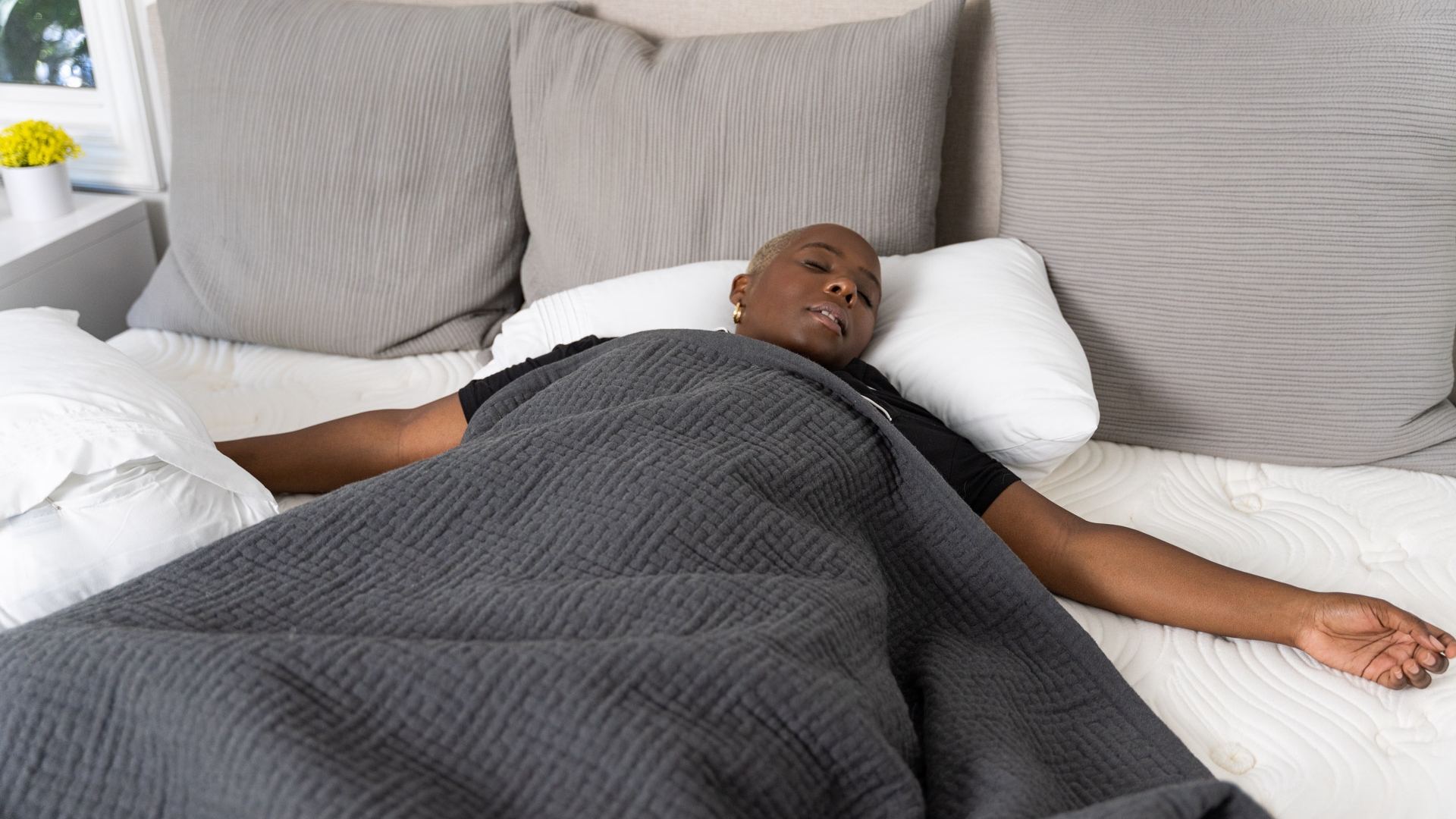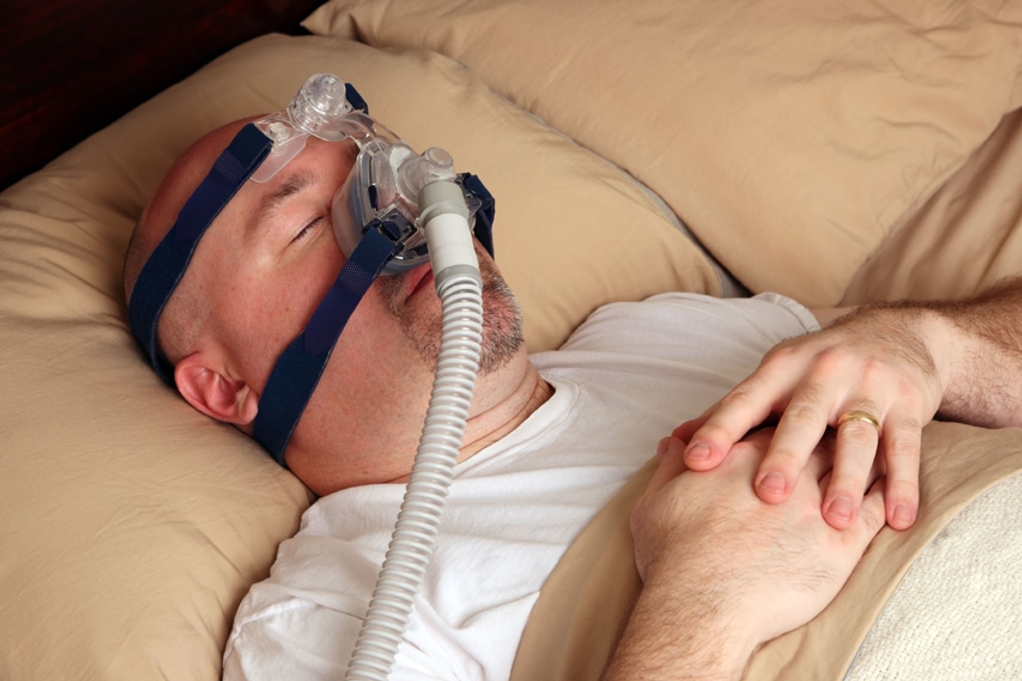You’ll never forget the first time you woke up in the middle of the night sweating and tangled in sheets. And then it happened again… and again. What were you experiencing? You might be experiencing perimenopausal night sweats for the first time. According to the North American Menopause Society, 75% of women will experience night sweats during perimenopause.
If you're reading this right now, you might be a woman in her 40s and part of the 75% that have had (at least a few) nights where your sleep has been screwed by a clammy episode drenched in sweat, tossing and turning. Welcome to the club!
Because there are so many of us in this club - and most of us aren't talking about it - this post is going to review what perimenopause is, signs and symptoms of perimenopause, how plus size women experience perimenopause, and night sweats and sleeping with perimenopause.
Disclaimer - We are not a medical professional, and this blog shouldn't be considered a replacement for speaking with a professional.
Part One: Perimenopause Basics
Let's start with the basics. Menopause - and perimenopause - is one of those things you don't think much about until you can't avoid thinking about it because the signs of it pop up everywhere. And while it's one of those things that happens to basically everyone, it's still something we tend to avoid talking about.
What Is Perimenopause?
Perimenopause is the transitional phase that leads up to menopause. Menopause is the gradual shift from a woman's reproductive capability to infertility. Perimenopause leads to menopause, which is reached when someone has gone 12 months without a menstrual period.
During perimenopause, two big things happen in a woman's body. First, levels of progesterone decline. Second, levels of estrogen fluctuate irregularly, rising and falling unpredictably while generally declining as a woman moves closer to menopause. These changes in progesterone and estrogen impact the body in different ways.
- Progesterone primarily impacts menstrual cycle, periods, mood, and sleep functions.
- Estrogen impacts vasomotor symptoms that trigger hot flashes and night sweats, bone health, and vaginal and bladder health.
Combined, the above is responsible for a cornucopia of fun symptoms that range from being mildly irritating to life-alternatingly awful.
Facts About Perimenopause
While perimenopause is a super nuanced, huge topic, here's some basic info you may find helpful:
- There is no formal age for which perimenopause begins. Most women begin in their mid-40s, but some can begin in their late 30s.
- Perimenopause traditionally lasts between four and ten years.
- Because many of the symptoms of perimenopause are caused by the erratic and uneven rise and fall of estrogen, they can come and go at any time. Some may last for years, some days.
- The most common first symptoms of perimenopause are changes to your period and menstrual cycle.
- The second most common perimenopause symptoms are sleep problems and night sweats.
- Additional common perimenopause symptoms include mood changes, vaginal and bladder changes, changes in sexual desire and functions
- There are hormonal treatments that can alleviate symptoms of perimenopause and menopause that can be explored with a doctor. However, they are not right for everyone.
Signs of Perimenopause: How do I know if I am experiencing perimenopause?
While some people will experience a clear transition into perimenopause - their period will start to become really irregular, lighter or heavier, for example, or they may have a hormone test done that indicates their estrogen levels are changing - others will never receive a formal diagnosis and simply "guestimate" based on personally observing changes in their characteristics.
Common Perimenopause Symptoms:
There are 10 common areas of perimenopause symptoms. They are:
- Irregularity or changes in period and menstrual cycle
- Hot flashes and night sweats
- Weight gain
- Mood swings and / or increased depression or anxiety
- Insomnia or sleep changes
- Hair loss
- Changes in sexual functioning
- Bone loss
- Dry skin, eyes, and mouth
- Memory issues
Most people assume changes to their period cycle are the first sign of perimenopause. However, it's important to note that many women will begin perimenopause with no changes to their period at all or while their hormone levels are in the "normal" range. This is known as the "very early perimenopause phase." Those experiencing this phase can self-identify when they experience characteristic changes in at least three of the 10 above areas of perimenopause symptoms.
Early Signs of Perimenopause
In short, there's a chance you'll have a few years where things start feeling really different, and you have no idea why. However, if are experiencing any of the following, you are most likely in early perimenopause:
- Your skin itches more
- It's harder to remember words when you need them
- Your fingers and toes tingle
- You suddenly poop a lot more
- Food tastes different, and you can't stand things you used to love
- Your energy levels are low
- Your boobs are sore or lumpy
- You're getting migraines when you never got them before
- Drastic mood swings
- Low quality sleep
Plus Size Perimenopause
This is the side of the internet where we talk about stuff from the plus-size perspective. Aging happens to everyone lucky enough to be alive, but both aging and hormones are things that are impacted by a person's weight. In turn, so may an experience with perimenopause.
Any plus-size woman who has ever been to the doctor and found herself questioned, judged, or ignored knows that the medical system isn't always the most kind to heavier-weight people. Unfortunately, the same level of nuance (and sometimes willful ignorance) also applies when examining the relationship between having a heavier weight and experiencing perimenopause. A recent study in Science Direct shares that "the complex interaction between age, obesity, and menopause is the subject of several ongoing studies."
4 Things We Know About Being Plus Size & Perimenopause
- One: Heavier people have more hot flashes and night sweats and worse episodes when they do — Studies show that heavier-weight women (those who might be labeled as "obese" and heavier) are significantly more likely to have more severe perimenopause symptoms than women who are considered "normal" or "overweight." The symptoms heavier women are most likely to experience more of, and the worst are vasomotor-related - AKA hot flashes and night sweats.
- Two: The extra fat levels on larger-bodied women influence estrogen levels, making hormonal disruptions more extreme — This includes stuff like brain fog, mood disorder, and weight gain.
- Three: Elevated levels of estrogen, usually found in heavier-weight women, make HRT therapy less impactful — This means that medical treatments for perimenopause are less likely to benefit many plus-size women.
- Four: Heavier weight women on HRT may face increased risks of venous thromboembolism (VTE) and other cardiovascular complications
Last, and certainly not least, we can't negate how the discrimination heavier women may face when receiving health care can impact how seriously they are taken when discussing perimenopausal-related symptoms with providers. As with many things, allowing plus-size women to have safe, non-judgmental spaces to be able to receive weight-neutral care is essential. It's also important that pieces (like this!) address hot topics through a size-friendly lens!
How Perimenopause Affects Sleep
We've already established that nearly three-quarters of all women will have their sleep disrupted during perimenopause and menopause. Between insomnia, night sweats, and trouble falling (and staying) asleep - sleep challenges are almost guaranteed to happen to us all in some way as we age.
Early perimenopause can change your ability to sleep in three significant ways:
One: You may find a strong sensitivity to sleep conditions.
It may have been easier for you previously to sleep well. Now, not so much. Things that never mattered or may have been a second though might now greatly impact your sleep quality. This includes:
- Room temperature
- The feel of the sheets
- The weight of the blanket
- Sounds in the room
- Lights in the room
- Firmness of the mattress
Two: Night Sweats
When you experience night sweating, it may happen for a few days in a row and then stop again. This is when the stuff around you - the sheets on my bed, what you wear to sleep, and having the best plus-size mattress for night sweats will really make a difference in your overall comfort!
Three: Mid-sleep wakeup
You may find yourself waking up in between the hours of 2-4 in the morning more frequently. Sometimes, it will be easy to go back to sleep; sometimes, it may not be.
What's happening in your body when you experience night sweats in perimenopause?
It doesn't matter how cool your room is. It doesn't matter what you wear to sleep. Night sweats have nothing to do with what's happening outside your body and everything to do with what's happening inside. Here's what you need to know:
The night sweat process is a cyclical one. Here's a breakdown of what occurs during this cycle:
- Step 1: Your hormones get triggered: The cycle kicks off with a fluctuation in estrogen levels that creates an imbalance that disrupts normal brain temperature regulation functions.
- Step 2: Your hypothalamus overacts: Inside your body is a temperature control center called the hypothalamus. In the case of perimenopause, your hypothalamus is unreliable. It interprets your hormonal shifts as a signal that your body is overheating, even if its temperature is within a normal range. However unreliable, the hypothalamus is loyal, and so it sends signals to your body that it needs to cool down, triggering…
- Step 3: Vasodilation, aka Blood Vessel Expansion: Your hypothalamus tells your body to cool down, and because they want to fight to keep your body at a normal temperature, the blood vessels near the surface of your skin start to dilate and widen to release heat. This makes you feel warm and hot, especially in your chest, face, and neck area where the blood vessels are close to the skin's surface.
- Step 4: Sweat gland support commences: When they sense what the hypothalamus is up to, they jump into action. This leads to excessive sweating, which your body uses to cool down through evaporation.
- Step 5: Sweat and heat release: As our body sweats and heat is released through the skin, it leads to drenching sweats that soak your clothes and your bedding. This is when you are going to wake up uncomfortable, hot, and wet.
Note: Remember how we said that having a heavier weight will impact perimenopause? This is one time it can come into play. Because body fat acts as an insulator, it traps heat in the body. The heavier someone is, the harder it can be for them to dissipate heat, which exacerbates the sensations of hot flashes. Some heavier people may also have a higher baseline body temperature due to increased metabolic activity and fat tissue insulation. Because of this, they may experience hot flashes more frequently or more intensely since their bodies work harder to cool down.
- Step 6: You might feel chills: Once your body releases excess heat, it can overcompensate, causing a cooling effect that can make you feel chills or cold. Any contact with damp clothing or sheets will exacerbate this cold sensation and make things even more uncomfortable.
- Step 7: Return to normal: But, by this time, you're awake, anxious, feeling energy coursing through your body, your nervous system is activated… Who can fall back asleep now? At this point the cycle can repeat - maybe right away, maybe not for days or months. Perimenopausal night sweats can last for years, ebbing and flowing as hormone levels change.
You’re Not Alone
Phew. Did you make it through all that? We've got one more essential thing to share with you. This is normal and you're not alone!
Does something feel different in your body? Is it harder for you to sleep through the night? Nobody knows your lived body experience better than you. Nobody knows what feels "normal" and what feels different. This is why it's essential that you start to trust yourself. If you feel like you may be experiencing perimenopause, talk to your doctor, talk to your friends, find resources and community online.
Looking for a cooler night's sleep with a mattress that is built for all body types with advanced THERMOGEL COOLING® Technology to help prevent night sweats? Big Fig mattresses are all designed with different stages of life in mind.







